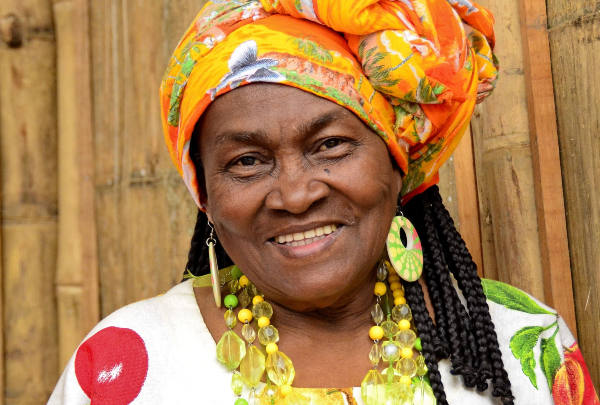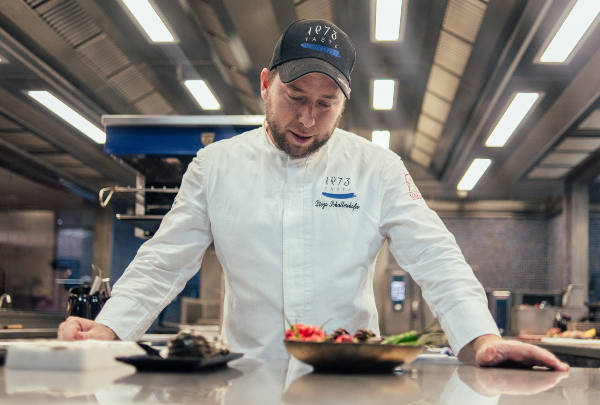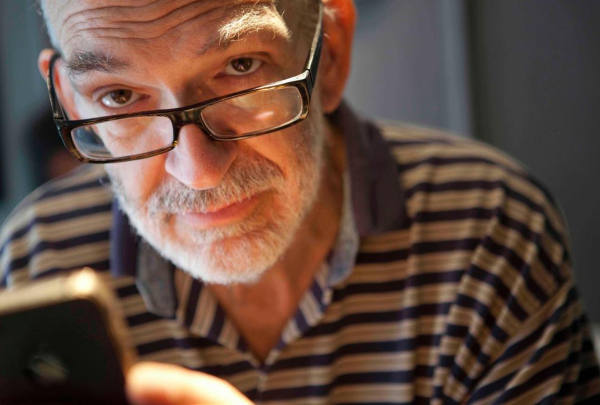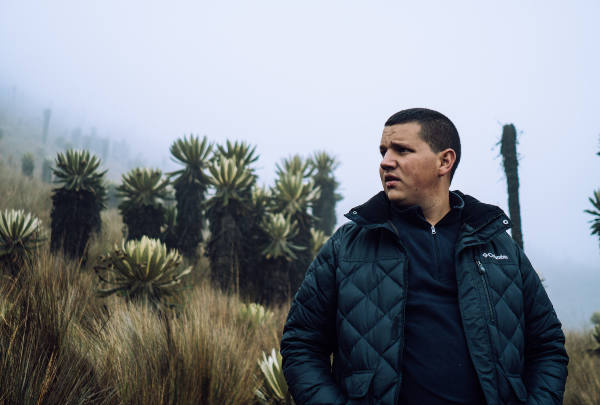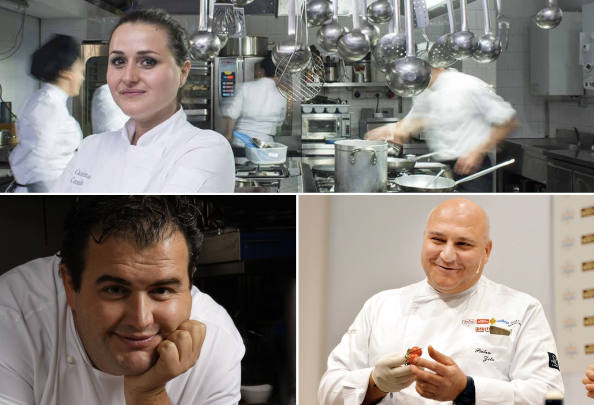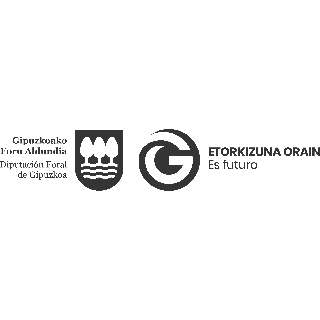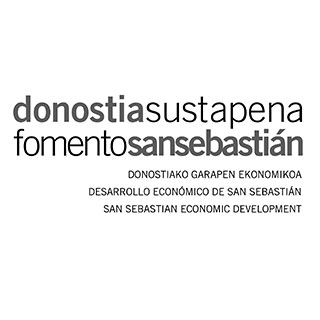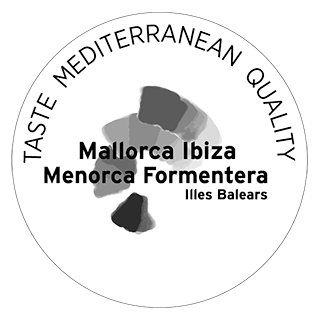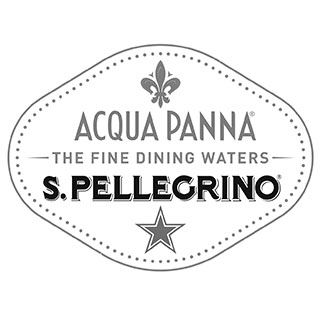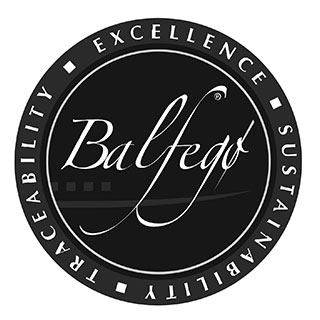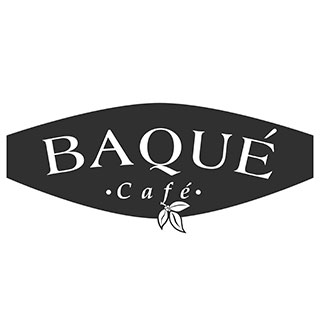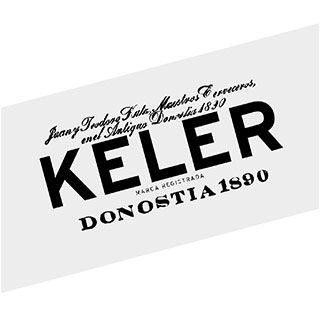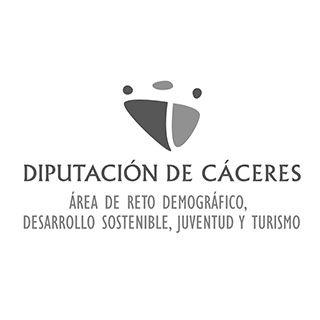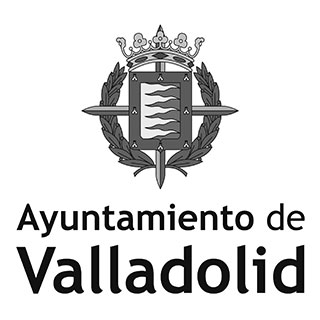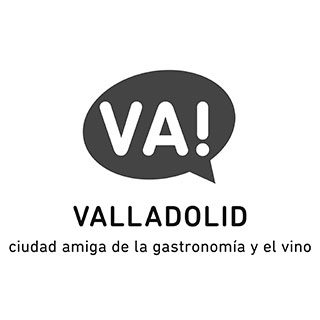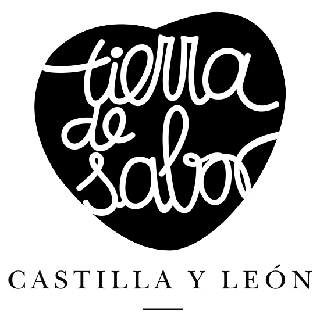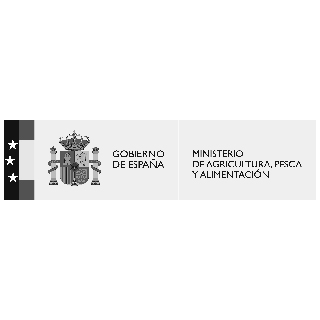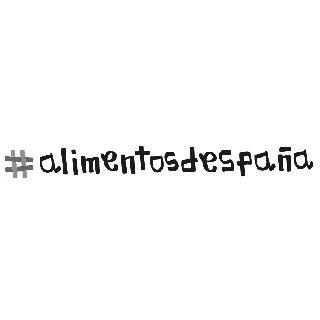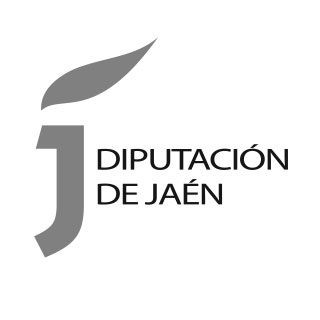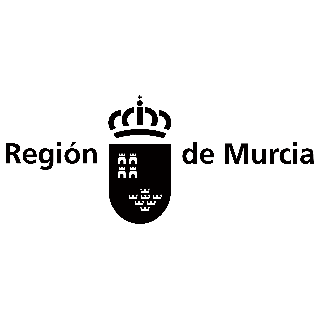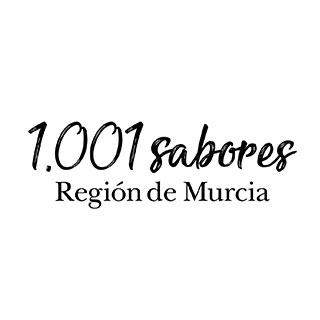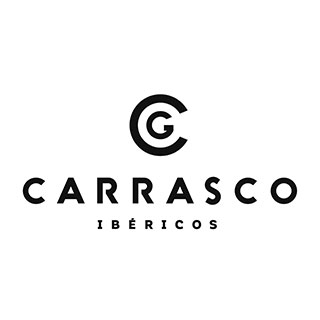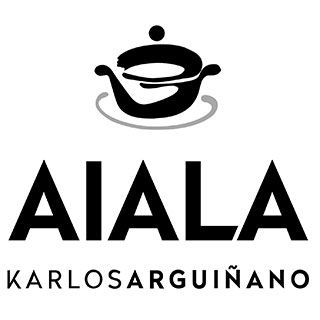Interview
Pedro Sánchez: “Bagá has the structure of a bistronomic restaurant, but the cuisine is different”.
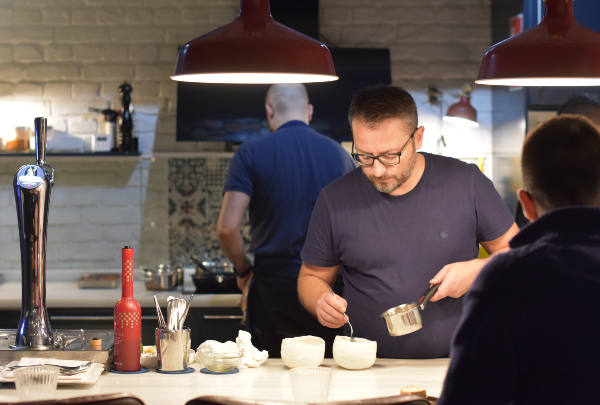
During the lockdown he led the World Central Kitchen initiative in Jaén to feed those most in need (“You realise that our job is not just to entertain people”), and he was one of the first to open his gourmet restaurant. He has reduced capacity because of the pandemic (he’s been left with room for eight diners) but he’s pleased with how the public has responded- they have completely booked up the restaurant until the end of the year- and with his project in general, and he doesn’t want hear a word about growing or changing. “If I change and cook with burners it wouldn’t be me anymore”. Pedro Sánchez, or Pedrito –as his friends call him, “they call me that affectionately”-, will be taking part next month in San Sebastian Gastronomika in the bistronomic section. “Is Bagá a bistronomic restaurant? With regard to its structure, it may be, as for its food, I don’t really know”. So what is the cooking at Bagá like? Steve Plotnicky said that it reminded him of Noma. “I wish it was like that…”. In the use of vegetables -in 80% of the dishes- definitely; as far as his colleagues are concerned, as well. Let’s hear what he has to say.
You reopened Bagá on the 1st of July. What was like at first? How have things gone up to now?
Things were a bit uncertain but the truth is that it worked. When we said that we were coming back we were inundated with bookings, which cheered us up quite a lot. We started working pretty well, although with eight customers per service. At the moment we are quite happy. We have bookings for what is left of the year, and people are responding well; not just people from Jaén but also those who come from other provinces.
Because we’re not talking about foreigners. Were there any?
Very few. Jaén isn’t a tourist destination and the percentage was very small, so that the origins of our diners haven’t changed.
Better for you at the moment…
Yes, we’re pleased but we’re aware that we are operating at 60% of our capacity. We have lost two positions at the bar and a table (there are two left). Although we have kept all of our staff.
What about the price?
We haven’t touched it. We’ve had the same one, 65€, for three years although in January we are going to put it up to 75€.
Because of the reduction in capacity and income?
We’d thought about it beforehand, it’s not due to the situation although it all helps. I appreciate that there are colleagues who have touched their prices although it depends on what you were charging before. We have increased the menu and the general gastronomic option at the restaurant, and we thought that it was fair to put up the price after three years without changing it.
Has what you are offering changed? There is a lot of talk about a new restaurant model…
We had and still have a single menu, although if someone asks me for something extra I provide it. It depends on the items that you have that day. We haven’t changed our identity at all. I can appreciate that the people who do so have to carry on along the same path. Not all the projects we have need to be the same; there is room for everyone, although some cost more and they may have to do more things to keep them afloat in difficult times like the ones we are currently going through.
Wouldn’t you like to form part of these, if it wasn’t for the current situation?
No, I wouldn’t. They have convinced people a lot that the dream of any chef is to have three Michelin stars with an opulent restaurant, and a huge staff, and this is not the case.
At the recent Gastronomika Live congress, Ferran Adrià described what kind of restaurant model he would recommend to anyone entering the sector now, and he mentioned Bagá in particular. Did you get things right in 2017 when you set up a 46-m2 restaurant with a bar and three tables, a capacity for 15 diners and just a thermomix and an oven in the kitchen?
I don’t know. I did it because I was frightened about the cost, and afraid of launching an expensive project. The proportion of money that the tasting menu costs in my business is very small. The produce takes up almost all the cost. This was and still is my course of action, and I’m very grateful and pleased about what Ferran said.
Have you never thought about expanding?
No, we don’t want to change. They have suggested things to me, even moving to Madrid or to Mallorca, but Bagá doesn’t make sense there. I’m not moving from these premises here. Now, with Covid, being small also helps to make everything easier to control and keep clean. We also have less chance of fresh outbreaks appearing, as we have a staff of six people. We’re keeping alert all the same.
Pedrito Sánchez, speaker at San Sebastian Gastronomika 2020
In just over a month we’ll see you at the San Sebastian Gastronomika congress along with Joan Roca, Bittor Arginzoniz and Ferran Adrià, but also with Sacha Hormaechea, Iván Domínguez or Nino Redruello. What kind of business and restaurant model does Bagá belong to? Gourmet or bistronomic?
Bagá has the structure of a bistronomic restaurant, but the cuisine is different. Although I couldn’t really say what kind of cooking we do either.
I’ll help you. Steve Plotnicki, the creator of the OAD guide, claimed that your cuisine could be similar “to what Noma would do in Spain” (Bagá is currently in 30th place in the OAD 2020 list, ahead of, for example, El Celler de Can Roca -35th -).
I wish I was similar to Noma… The thing is I’m a really poor chef technically. I really admire other colleagues who do things that I can’t do. I try to make sure that people don’t notice this weakness by really getting to know the product and trying to give it what it asks for; to treat it in different ways.
It seems that this is what people are looking for now. Were you quite clear about the gastronomic option you wanted to follow when you started out?
Not at all. But cooking without a stove, without an induction hob and without knowing about techniques is complex. All this meant and means that I cook a little differently. And I’d like to add that, although I’m passionate about the product, society in general must start to defend tradition that needs to be seen as consisting of ideas and thinking, and not just value a meal because of how big the lobster is. We haven’t learnt how to convince people that the most important value that a style of cooking has is thinking that goes into it; it’s what requires the most work. There is a lot of thinking that goes into a cuisine. We need to defend tradition but also support people who do different things.
You’re an ambassador for the gastronomy of Jaén and Andalusia but you mention that you are totally against zero km food. How can you balance this?
Zero km food is fine in certain produce; not so much in others. Nobody has all the produce that they want within reach. As it happens, Jaén is not by the sea and I am a big fan of its produce. The world has evolved very quickly so that we are all joined together, and can obtain fresh produce from anywhere. I think that shunning this is going against evolution a bit.
But this may harm the environment and sustainability…
What I’m not going to do is buy a cauliflower from 10,000 kilometers away when I can grow one here, of course. But I will say that if I need a good oyster, I have no objection to bringing it from France.
“I’d like the Asador Etxebarri to put a lettuce on the grill instead of a T-bone steak”
Let’s talk about fish, which is basically only present in the cooking at Bagá as creams, emulsions or sauces. Or shall we talk about vegetables?
80% of the menu at Bagá consists of vegetables. The vegetable world is the present and future of gastronomy. I’d love, for example, for Asador Etxebarri, instead of a T-bone steak, to grill the lettuce that they use as garnish, and the fat from the steak accompanying it… It is incredible the huge number of textures, flavours and aromas that vegetables have, a range that only they can give you. Not even the sea can. What I most like about a hake is extracting the collagen and the fat from it, and not so much the texture in itself.
Do you change the menu much? Do you have any historic dishes?
The fennel with hake pilpil and the Motril shrimps in partridge pickle are now iconic dishes, but every week I bring out a new dish depending on the produce that I get. This week I’ve begun with mushrooms, especially with the champignon mushroom, the best mushroom that there is.
The Michelin 2020 will be held in late November. What do you expect? What do you think about Michelin?
I hope that Michelin is able to rise to the occasion. I’m sure that it will. I’m referring to the fact that this isn’t year to be punishing people; the sector has already been punished enough. I hope it motivates them. Michelin is still an incredible honour that chefs should be able to deal with, and that must encourage them. We already put a lot of pressure on ourselves to want to be the best, to have to cope with the pressure of having a Michelin star on top of that. I don’t think that it’s a question of trying to be the best.
But the star you won shortly after opening was really good for you, as I suppose it is for everyone…
The Michelin Guide is the most important showcase that there is in the world of gastronomy, and of course it helps you; it really does.
I won’t ask you for options for the new guide, which is being presented on the 30th of Novemeber in Madrid, but I will ask you to recommend us a few places in your area.
In Jaén we eat really well. It helps that we don’t have the kind of mass tourism that they have in other areas, and that we still have a personality all of our own and a highly personal way of experiencing catering. I really love the way that they eat here. There are great restaurants, which shouldn’t become obsessed about Michelin stars, which will continue to be our favourites.
Such as…
For example, La Alcuza, in Pegalajar, with a really personal style of cooking, or Almocadén, in Alcaudete, a beautiful place.
We’re coming to the end. Will we recover from this?
People need to live, socialise, and also go to a restaurant to get away from it all; I think this will be really important.
Did you ever consider the option of setting up a delivery service? It looks like this is a business model that is here to stay.
I didn’t think about it. I can’t go to anyone’s house with a bit of cauliflower because they would throw it out of the window… It does look like this is a global trend, but there will be people that it works for and others that it doesn’t. Bear in mind that most big restaurants in Spain are not in large cities, but in rural areas, where delivery services don’t work as well. As well as that, I don’t think that the pleasure is the same. You don’t enjoy yourself as much in a house as you do in a restaurant.
One last thing: everyone in the sector calls you Pedrito. Where does this diminutive come from?
In my home my father is Pedro and my grandfather was Pedro, so I’ve been Pedrito since I was a child. I now know that the people who call me that do so really affectionately.
By the way, I just want to say that we’ll get through all this, and I’m not just talking about our sector.
Thanks, Pedrito.
.jpg)
